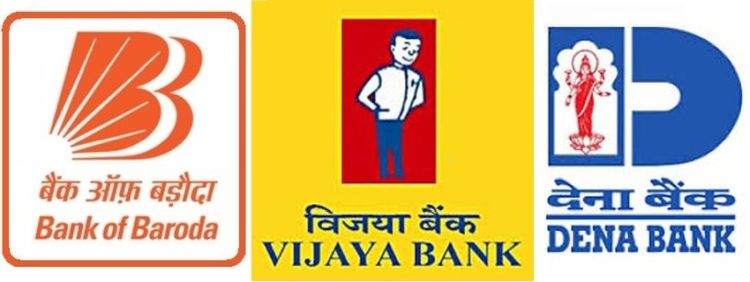
Representational Pic
New Delhi (IANS): In a reform measure aimed at further consolidation, the government on Monday announced the merger of three state-run banks--Dena Bank, Vijaya Bank and the Bank of Baroda--that will make it the country's third-largest bank with a combined business of Rs.14.82 lakh crore.
Finance Minister Arun Jaitley announced the merger proposal at a press conference saying that the respective boards of the three banks have been directed to consider the proposal at the earliest.
The three banks will continue to operate as independent banks till the proposal is passed by the boards of individual banks and the name of the merged bank would be decided by them in the scheme of amalgamation, he said.
Jaitley said the merger would create a sustainable mega-bank which would be third largest in the country.
"The amalgamated entity would increase banking operations and its ability to go for further consolidation," he said.
The merger decision was taken by the "alternative mechanism", which met on Monday. The meeting chaired by Jaitley was attended by Ministers Piyush Goyal and Nirmala Sitharaman.
This is the second such exercise in the last 18 months. In the previous such mega-merger, five associate banks and the Bharatiya Mahila Bank became part of the state-run State Bank of India on April 1, 2017, making the country's largest lender among the world's top 50 banks.
Noting that one of the banks proposed in this merger was under the Reserve Bank of India's Prompt Corrective Action (PCA) framework on account of its massive accumulated non-performing assets (NPAs), or bad loans, Jaitley said: "The consolidated entity's capacity to absorb a weaker bank guided our decision to propose this merger to the boards."
"No employee would face adverse service conditions due to the merger," he added.
Jaitley said while consolidation of banks was on agenda and was even announced in the Budget, the government was waiting for the non-performing assets (NPA) situation to take a turn for the better before going ahead.
Rejecting Congress claim that the gross NPAs stood at Rs 2.5 lakh crore when the UPA exited power, he said that actual figure was Rs 8.5 lakh crore because of the indiscriminate and disproportionate lending during 2008 to 2014. The government had only unearthed the NPAs which were sought to be brushed under the carpet, he added.
"Prior to 2008, loans worth Rs 18 lakh crore were given. And between 2008 and 2014, there was lending of almost Rs 55 lakh crore," he said.
The Minister added that this indiscriminate lending of nature "as if there was no tomorrow" took a toll on the economy, which was followed by evergreening of loans and brushing the NPAs under the carpet.
He said the RBI's asset review in 2015 revealed the total NPAs were actually to the tunes of Rs 8.5 lakh crore, not Rs 2.5 lakh crore.
"It was only after 2015 that the real picture was known and the government and the RBI started taking concrete steps. And the first step was to accept there were NPAs of Rs 8.5 lakh crore on account of adventurous lending," Jaitley said.
He added those NPAs rose further because of the accruing interest.
Jaitley said the government took a series of steps to tackle the NPA challenge including the Insolvency and Bankruptcy Code "which was a defining moment in creditor-debtor relationship".
He said the NPA curve was now taking a turn and the time was opportune to go ahead with consolidation of banks.
"The envisaged amalgamation will be the first-ever three-way consolidation of banks in India, with a combined business of Rs 14.82 lakh crore, making it India's third largest bank," an official statement said.
It added that the consolidation will help create a strong globally competitive bank with economies of scale and enable realisation of wide-ranging synergies.
"The amalgamated entity will have a net NPA ratio at 5.71 per cent, which is significantly better than PSB average of 12.13 per cent, and declining further," the government said.
It added that gross NPAs for the combined entity has started declining with a decline of Rs 1,048 crore in the first quarter this year.
"Capital Adequacy Ratio (of the amalgamated bank) at 12.25 per cent is significantly above the regulatory norm of 10.875 per cent and the stronger amalgamated bank will be better positioned to tap capital markets," the government said.